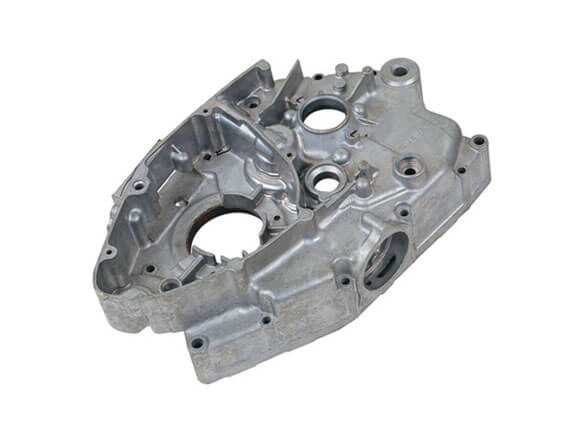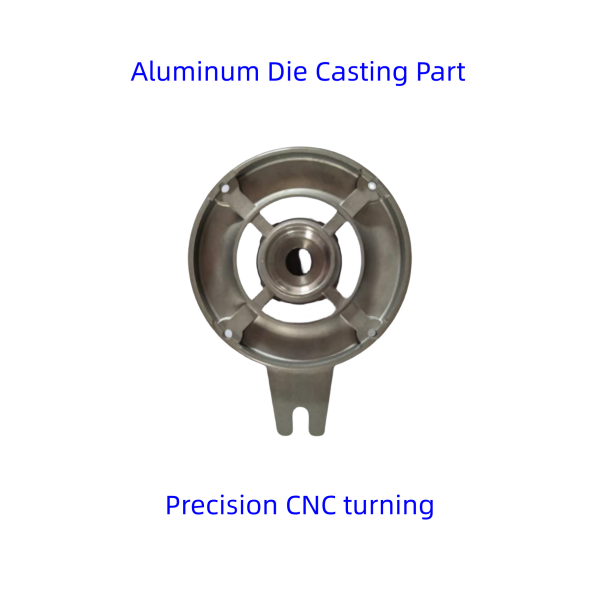Aluminum casting methods that streamline product development
A Comprehensive Guide to Picking the Right Foundry Services for Your Task Needs
Selecting the right shop services is essential for the success of any kind of project. Each casting method-- sand casting, investment casting, and die spreading-- has unique advantages. Understanding these choices helps in making educated choices. Material choice, manufacturing abilities, and quality control are essential aspects to think about. Furthermore, assessing prices can affect lasting feasibility. aluminum casting. What variables should guide this decision-making procedure?
Comprehending the Various Sorts Of Factory Providers
While the globe of foundry services may seem complicated in the beginning glance, recognizing the various types can considerably simplify the production procedure. Shops generally focus on casting steels, and the major kinds include sand spreading, investment casting, die spreading, and centrifugal spreading.
Sand spreading involves producing mold and mildews from sand and is optimal for big components or low-volume manufacturing. Financial investment spreading, on the other hand, offers high precision for intricate layouts, making it ideal for aerospace or medical applications. Pass away spreading, identified forcibly molten metal into molds under high stress, is reliable for automation of smaller components.
Centrifugal casting utilizes rotational pressure to distribute molten metal, yielding strong, round parts. Each service kind is and has unique advantages selected based on particular project requirements. Recognizing these distinctions permits makers to choose the most appropriate shop solution, eventually improving effectiveness and item top quality.
Key Elements to Consider in Material Option
Choosing the appropriate product for factory services is an essential action that affects the general success of a project. Key consider product choice include mechanical properties, thermal resistance, and deterioration resistance - Precision aluminum casting. Recognizing the designated application and its requirements is essential; products should stand up to operational stress and anxieties while preserving integrity gradually
Another vital consideration is the product's compatibility with the chosen production process, as some materials are much better suited for particular techniques. Cost-effectiveness additionally plays a considerable role, as budget plan constraints can restrict options.

Availability and lead times of materials can influence project timelines, making it needed for job supervisors to analyze these variables thoroughly. By meticulously assessing these components, one can guarantee a much more efficient and successful factory solution experience.
Assessing Manufacturing Capabilities and Technologies
Just how efficiently a foundry can meet job specs depends upon its manufacturing abilities and technologies. A complete evaluation of these elements is crucial for project success. Manufacturing capacities incorporate the factory's capacity to handle differing job timelines, dimensions, and intricacies. Understanding the foundry's equipment and machinery is important, as contemporary technologies such as computer numerical control (CNC) machining and progressed mold-making techniques can significantly enhance accuracy and efficiency.
Additionally, the foundry's usage of ingenious products and site web processes, such as 3D printing or shed foam casting, can offer benefits regarding layout versatility and cost-effectiveness. It is additionally crucial to evaluate the factory's ability to scale manufacturing, guaranteeing that they can suit future rises popular without endangering high quality. By carefully examining these factors, job supervisors can make informed choices concerning which shop is ideal matched to satisfy their certain manufacturing demands and technological assumptions.
Importance of High Quality Guarantee in Metal Casting
Quality guarantee stands as a crucial column in the metal casting sector, making sure that every element meets rigorous specifications and requirements. This process involves methodical tracking and assessment of each phase of manufacturing, from first design to final evaluation. Carrying out strenuous quality control protocols improves the dependability and efficiency of actors components, lowering the possibility of flaws that can endanger architectural honesty.
Moreover, efficient quality guarantee promotes trust between clients and shops, as adherence to high criteria signifies commitment to excellence. It likewise lessens pricey rework and delays, streamlining production procedures. By recognizing possible concerns early, top quality assurance not only safeguards the end item yet also adds to constant improvement within the foundry's procedures. Eventually, prioritizing quality control in metal spreading is essential for attaining client official statement fulfillment and preserving an one-upmanship in the industry.
Evaluating Cost-Effectiveness and Spending Plan Restrictions
While traversing the complexities of factory solutions, assessing cost-effectiveness and budget plan restrictions becomes an essential variable for organizations. Comprehending the complete expense of ownership involves more than just the first cost; it needs an evaluation of long-term costs, consisting of products, labor, and operational effectiveness. Firms must request in-depth quotes that outline all prospective prices, enabling a more clear contrast between different shops.
In addition, companies have to evaluate their details project needs against budget plan constraints. This consists of assessing the compromises in between reduced costs and prospective effect on quality, lead times, and dependability. It is essential to consider whether the selected factory supplies scalable solutions that can fit future requirements without considerable monetary stress. By meticulously balancing expense factors with job objectives, firms can make informed decisions that optimize both budget plan and efficiency, making certain effective outcomes for their foundry jobs.
Regularly Asked Inquiries
Just How Can I Ensure Timely Delivery of My Foundry Job?

What Qualifications Should a Factory Company Have?
A trusted foundry solution provider need to possess qualifications such as ISO 9001 use this link for top quality management, ISO 14001 for ecological management, and industry-specific qualifications that demonstrate compliance with safety and security and performance criteria relevant to the casting procedure.
Can I Go To the Foundry Prior To Making a Choice?
Yes, visiting the foundry prior to choosing is typically advisable. This permits potential clients to assess the facility, fulfill the team, and assurance that the services straighten with their details task demands and standards.
What Is the Common Lead Time for Custom Castings?
The normal preparation for customized spreadings ranges from 4 to twelve weeks, relying on the complexity of the layout, material specifications, and the shop's capability. Prompt interaction can often speed up the process.
How Do Foundries Manage Style Adjustments Throughout Production?
Shops generally fit style adjustments during manufacturing by executing flexible processes. They assess the effect on timelines and prices, interact with clients, and change operations to assure top quality while minimizing disruptions to the manufacturing timetable.
